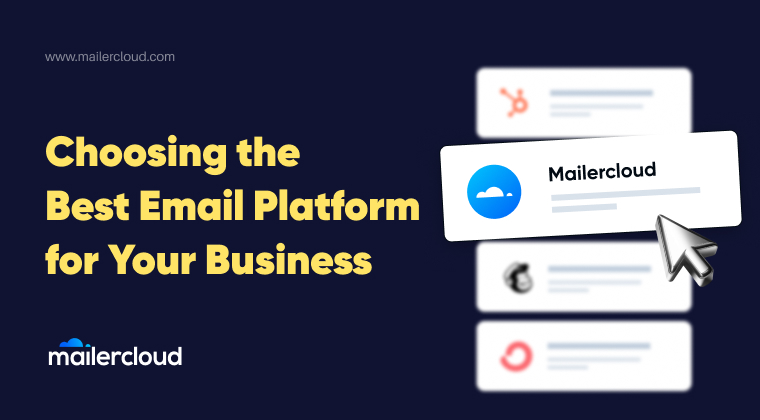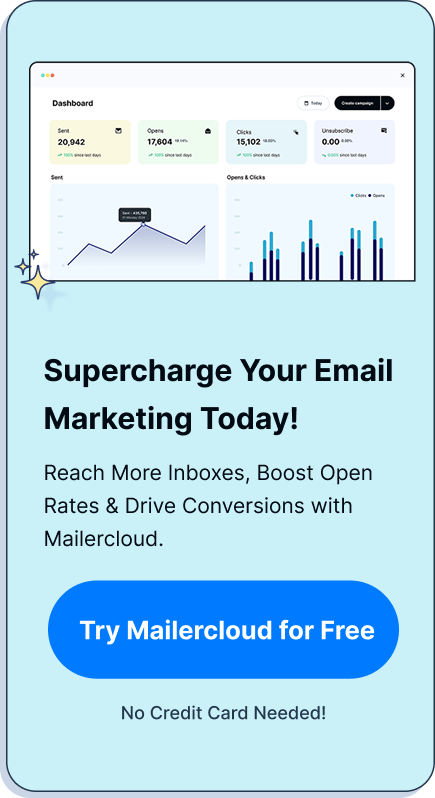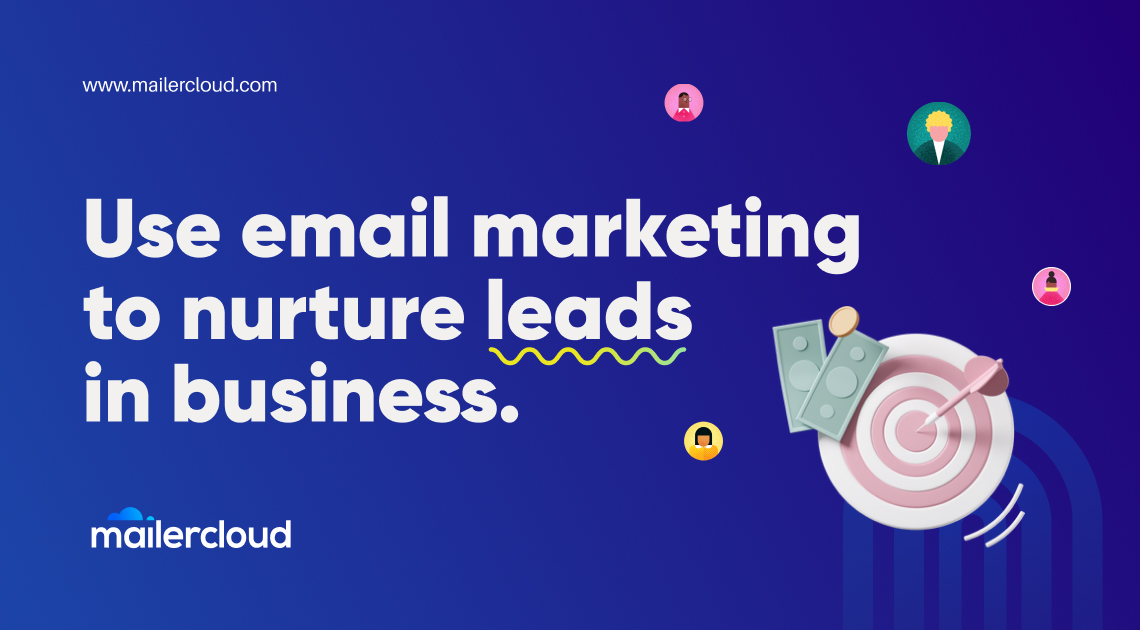Email marketing remains one of the most effective tools in a marketer’s arsenal, and choosing the right email marketing platform is crucial for the success of your campaigns. This guide is designed to help you find the right platform for your business by highlighting key considerations, features, and strategies. Whether you’re new to email marketing or a seasoned pro, this article will help you navigate the crowded market and select a platform that aligns with your goals
Table of Contents
Why Choosing the Right Email Marketing Platform is Important
Email marketing is used by businesses of all sizes to engage customers, promote products, and drive revenue. A well-suited platform can help your business grow by enabling email campaigns that resonate with your audience. When choosing the right platform, you ensure that your marketing goals are met efficiently and cost-effectively. Additionally, if your business is undergoing significant changes, such as an AspDotNetStorefront to Shopify migration, you may need to reassess your email marketing platform to ensure it integrates seamlessly with your new e-commerce setup.
What to Consider When Choosing an Email Marketing Platform
Choosing the right email marketing platform requires understanding your business’s unique needs and the specific goals you aim to achieve with your email campaigns. Here are several key factors to consider when making your decision:
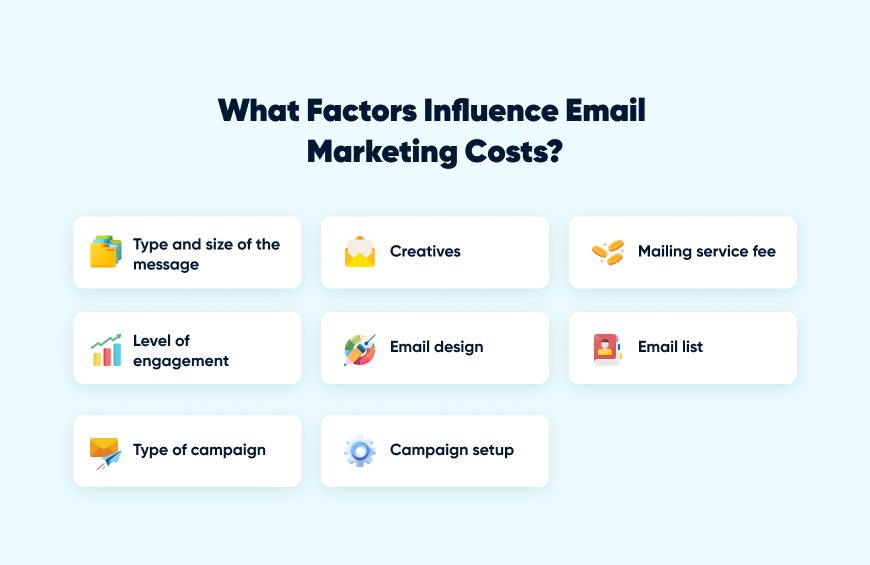
Budget and Pricing Plans:
- For small businesses, budget is often a primary concern. Many platforms offer free plans or affordable pricing tiers, allowing small business owners to get started without significant upfront costs. However, these plans may come with limitations, such as fewer email sends per month or limited features. It’s important to evaluate whether these limitations would hinder your ability to execute effective campaigns. It’s important to evaluate whether these limitations would hinder your ability to execute effective campaigns. To ensure you stay on track, leveraging budget planning software can help you manage costs effectively.
- Larger enterprises with bigger marketing budgets might need more advanced tools. These platforms often offer scalable pricing models that can grow with your business. While these plans may come at a higher cost, they usually include features such as advanced automation, dedicated support, and higher email send limits, making them more suited to larger-scale operations.
Ease of Use:
- Whether you’re new to email marketing or an experienced marketer, the platform’s user interface (UI) is a crucial consideration. Platforms with drag-and-drop builders, pre-designed email templates, and easy-to-use workflows can save valuable time and ensure that your campaigns are up and running quickly. A platform that is intuitive and easy to navigate will allow your team to focus more on creating high-quality content rather than learning how to use the software.
- Some platforms are designed specifically for beginners or small businesses with fewer resources, so finding one with a user-friendly interface is essential if you don’t have a dedicated marketing team. Look for platforms that provide tutorials, customer support, and onboarding guides to help you get started smoothly.
Marketing Automation Capabilities:
- Marketing automation is a key feature for any business looking to streamline its email marketing efforts. Platforms that offer automation tools allow you to set up workflows that automatically send emails based on specific actions or triggers, such as a user signing up for your newsletter or making a purchase. This helps you nurture leads, improve customer engagement, and ensure timely, relevant communication with your audience without having to manually send each email.
- For businesses looking to scale, advanced automation capabilities can include behavioral targeting, segmentation, and personalization, which can make your email campaigns more relevant and impactful. Small businesses, however, might prioritize simpler automation features, such as welcome emails or abandoned cart reminders, to help them engage customers effectively.
Analytics and Reporting:
- The ability to track and measure the success of your email campaigns is another essential factor. Look for an email marketing platform that offers robust analytics and reporting tools, such as open rates, click-through rates, bounce rates, and conversion tracking. These insights will help you understand what’s working and what needs improvement.
- Some platforms also provide A/B testing features, allowing you to test different subject lines, email content, or sending times to determine which elements lead to higher engagement and better performance. For businesses with advanced marketing goals, in-depth analytics can also include data on subscriber engagement, heatmaps, and ROI.
Integration with Other Tools:
- For many businesses, an email marketing platform is just one piece of the puzzle. It’s essential to choose a platform that integrates seamlessly with your existing marketing tech stack, including your CRM (Customer Relationship Management) system, social media platforms, e-commerce platforms, and analytics tools.
- Integration with platforms like Google Analytics, Shopify, and Salesforce can help you synchronize your data and provide a more unified view of your marketing efforts. This is especially important for businesses that rely on marketing automation and need to share data across different channels for a cohesive customer experience.
Support and Resources:
- As you scale your email marketing efforts, it’s essential to have access to responsive customer support. Choose a platform that offers multiple support channels, including live chat, email support, and phone assistance. Many platforms also offer extensive knowledge bases, webinars, and community forums, which can be especially useful for businesses that prefer to troubleshoot on their own.
- Some platforms also provide dedicated account managers or custom support packages for larger enterprises or high-volume users. Having access to personalized support can help solve complex issues quickly and keep your campaigns running smoothly.
Scalability:
- As your business grows, so too will your email marketing needs. When selecting an email marketing platform, ensure that it can scale with your business. Look for platforms that offer flexible plans, unlimited lists, and the ability to handle increased email volume without compromising performance.
- Some platforms also offer custom enterprise solutions that can cater to businesses with high demands, including advanced data storage, enhanced security features, and the ability to send millions of emails per month.
Deliverability:

- The deliverability of your emails is critical to the success of your campaigns. The best email marketing platforms employ advanced techniques to ensure that your emails land in your subscribers’ inboxes, not their spam folders. These platforms often provide tools to help improve deliverability, such as spam checkers, email authentication, and recommendations for optimal send times.
- Additionally, choose a platform that maintains good relationships with email providers (like Gmail, Outlook, etc.), as this can have a direct impact on how many of your emails are successfully delivered.
Security and Compliance:

- Security is an important factor when dealing with sensitive customer data. Ensure that the platform you choose complies with industry standards and regulations, such as the General Data Protection Regulation (GDPR) and CAN-SPAM. These compliance features will help safeguard your customers’ data and prevent legal issues related to email marketing.
- Many platforms offer tools to manage opt-ins and unsubscribe requests automatically, ensuring that you stay compliant with data privacy laws while respecting your customers’ preferences.
Understanding Different Types of Email Marketing Tools
When it comes to email marketing, not all tools are created equal. Different platforms and tools cater to different needs and use cases. Understanding the various types of email marketing tools available can help you choose the right one for your business goals, whether you’re a small business just starting out or a large enterprise looking for advanced capabilities.
Transactional Email Tools:

- Transactional emails are essential for sending automated, one-to-one messages triggered by specific actions. These include order confirmations, shipping updates, account creation confirmations, password resets, and other types of system-generated emails.
- Unlike promotional emails, transactional emails are typically triggered by a user’s action or interaction with your website or service. They are essential for maintaining communication with your customers and ensuring a smooth user experience.
Key Features of Transactional Email Tools:
- Personalization: Personalized content, such as customer name, order number, or product details, to enhance the customer experience.
- High Deliverability: Transactional emails need to be delivered on time and directly to the inbox, as they contain vital information, like order confirmations or password resets.
- Reliability: A reliable service is essential for transactional emails because delays or failures can cause frustration and loss of customer trust.
- Popular Tools: Services like SendGrid, Mandrill (Mailchimp), and Mailgun specialize in transactional email delivery. These platforms provide tools to automate and track transactional emails and ensure that they are delivered successfully.
Marketing Campaign Tools:

- These tools are designed specifically for creating and sending promotional, marketing-focused emails to large groups of recipients. Marketing campaign tools are used to send newsletters, product promotions, seasonal offers, and other marketing-related communications to a segmented audience.
- Campaign Tools: Unlike transactional email tools, marketing campaign tools usually come with a variety of features designed to create and manage targeted campaigns, including A/B testing, detailed analytics, and automation workflows.
Key Features of Marketing Campaign Tools:
- Templates: Pre-designed email templates that help marketers create visually appealing emails quickly.
- Segmentation and Personalization: Ability to segment your audience based on behavior, demographics, or past interactions and personalize email content to improve engagement.
- Analytics: In-depth tracking and reporting capabilities that show open rates, click-through rates (CTR), conversion rates, and other metrics to assess campaign performance.
- Automation: The ability to automate various aspects of the campaign, such as sending welcome emails, drip campaigns, and follow-ups.
- Popular Tools: Platforms like Mailercloud, Mailchimp, Klaviyo, and HubSpot are widely used for email marketing campaigns. These platforms often provide tools for list segmentation, personalized email creation, and multichannel campaign integration.
Newsletter Tools:
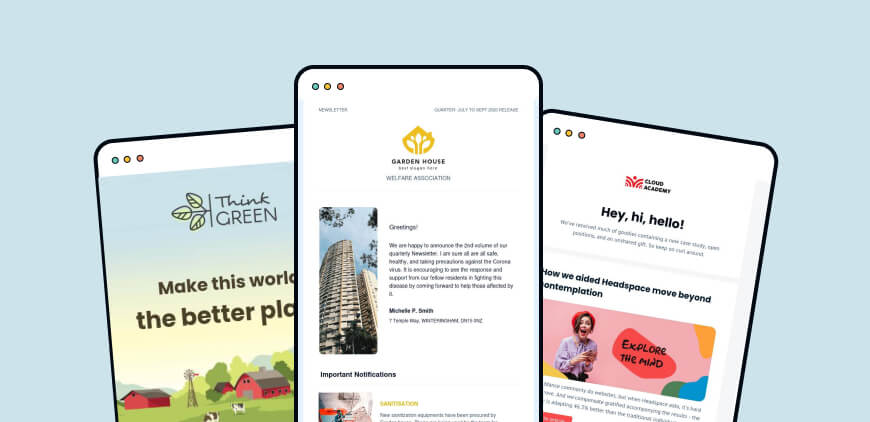
- Newsletters are a popular format for businesses to regularly engage with their audience. Whether it’s weekly updates, product announcements, or curated content, a newsletter keeps your audience informed and engaged with your brand.
- A good newsletter tool will focus on streamlining content creation, scheduling, and sending to ensure consistency. Additionally, it will provide metrics and insights into the engagement level of each edition, helping you optimize future newsletters.
Key Features of Newsletter Tools:
- Drag-and-Drop Editor: Easy-to-use editors that allow you to create attractive newsletters without needing coding skills.
- Predefined Templates: Templates designed for newsletter layouts, making it easy to organize content in an appealing way.
- Email List Management: Allows you to grow and manage your email list, ensuring that your newsletters are sent to the right recipients.
- Scheduling: The ability to schedule newsletters in advance to maintain consistency and timing.
- Popular Tools: Tools like Substack, MailerLite, and Benchmark Email specialize in creating and sending newsletters with intuitive design tools and list management options.
Drip Campaign Tools (Automated Email Sequences):

- Drip campaigns are a series of automated emails sent to a subscriber over a period of time, usually to nurture them through the sales funnel or encourage customer retention. These campaigns can include welcome series, lead nurturing, or onboarding sequences.
- Drip campaigns are highly effective for lead generation, customer engagement, and onboarding. The goal is to send the right message at the right time, based on the user’s behavior or actions, to keep them engaged and move them closer to a purchase or desired action.
Key Features of Drip Campaign Tools:
- Behavioral Triggers: Automatically sending emails based on actions taken by users, such as signing up, making a purchase, or abandoning a cart.
- Personalization: Tailoring each email in the series based on the user’s preferences or behavior to increase relevance and engagement.
- Multi-Step Automation: Setting up complex workflows that automate the entire process, reducing manual effort.
- A/B Testing: Testing different email versions in the drip campaign to see which resonates most with your audience.
- Popular Tools: ActiveCampaign, ConvertKit, and GetResponse are well-regarded platforms for creating and managing drip campaigns. These platforms offer powerful automation features that allow for the seamless creation of personalized, multi-step email workflows.
E-commerce Email Marketing Tools:
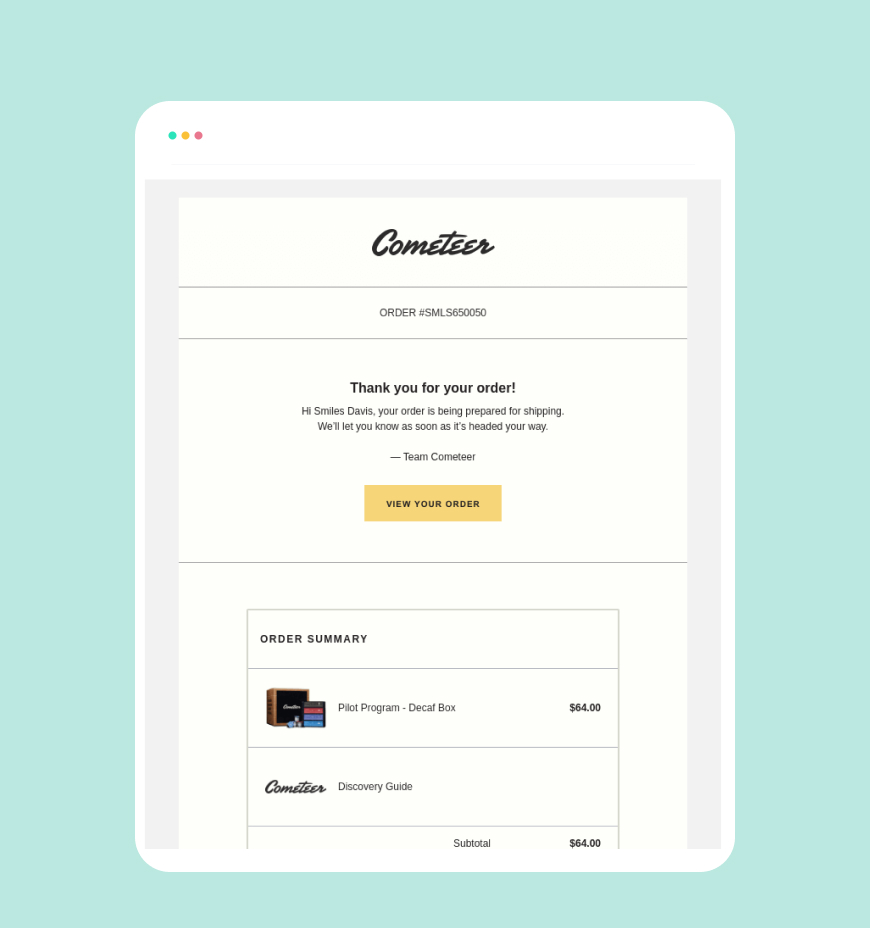
- For businesses in the e-commerce sector, email marketing tools specifically tailored for e-commerce can significantly enhance customer engagement and boost sales. These tools often include features like abandoned cart recovery, product recommendations, and order follow-ups.
- E-commerce email marketing platforms focus on personalized product recommendations and other email strategies designed to convert users at various points in the purchasing journey. The goal is to turn casual visitors into paying customers by nurturing leads with targeted email content.
Key Features of E-commerce Email Marketing Tools:
- Abandoned Cart Emails: Automated emails sent to customers who add products to their cart but don’t complete the purchase.
- Product Recommendations: Personalized email content based on past purchases or browsing history to suggest products customers may be interested in.
- Purchase Confirmation & Order Updates: Automated email notifications to confirm purchases and keep customers informed about shipping or delivery status.
- Integration with E-commerce Platforms: Seamless integration with platforms like Shopify, WooCommerce, or Magento to sync customer data and send targeted campaigns.
- Popular Tools: Klaviyo, Omnisend, and Privy are popular tools for e-commerce businesses, providing advanced features like behavioral segmentation and email workflows that integrate with e-commerce platforms.
SMS & Email Marketing Tools (Omnichannel Marketing):

- An increasing number of businesses are integrating SMS marketing into their email marketing strategy to enhance customer engagement. Omnichannel email marketing tools allow businesses to engage customers across multiple platforms, such as email, SMS, and social media, with a consistent message.
- By combining email and SMS marketing, businesses can create a more holistic and effective marketing strategy, ensuring their message reaches customers regardless of their preferred channel.
Key Features of SMS & Email Marketing Tools:
- Multichannel Campaigns: Sending messages across multiple channels, including email and SMS, to ensure better reach and engagement.
- Personalized Messaging: Tailoring both email and SMS content based on user behavior, preferences, and demographics.
- Syncing with Customer Data: Integrating with your CRM or marketing automation platform to create a unified view of customer interactions.
- Scheduling and Automation: Setting up automated email and SMS sequences to maintain consistent communication.
- Popular Tools: Moosend, Omnisend, and SMSBump offer robust solutions for integrating SMS and email marketing into one cohesive strategy.
Top Features of the Best Email Marketing Platforms
The best email marketing platforms provide features such as:
- Marketing automation tools: Save time and enhance personalization.
- Email templates: Allow quick creation of visually appealing campaigns.
- Analytics: Track open rates, clicks, and conversions.
- Integration capabilities: Seamlessly connect with other marketing channels.
Free Plans and Trials: Are They Worth It?
Many platforms offer free plans or trials to help you get started. For example, Mailercloud provides a free plan with essential features, allowing you to test the platform’s capabilities. However, these plans often come with limitations, such as monthly email sends or fewer advanced features, making it essential to evaluate if they align with your marketing goals.
Email Marketing for E-commerce: Best Practices
For e-commerce businesses, email marketing is a powerful way to drive sales and engage customers. Features like abandoned cart reminders, product recommendations, and promotional email campaigns can significantly boost conversions. Look for a platform that integrates seamlessly with your e-commerce site and offers advanced segmentation tools.
Email Marketing for Small Businesses: Best Fit Platforms
Small businesses need tools that are affordable and easy to use. Platforms like Mailercloud cater to these needs with intuitive interfaces and pricing plans that fit small budgets. These tools often include essential features like marketing automation and email templates, making them the best fit for small businesses.
How Marketing Automation Enhances Email Campaigns
Marketing automation allows you to streamline your email marketing process by scheduling emails, personalizing content, and automating responses. This is particularly beneficial for managing email lists and running multi-channel campaigns, including email and SMS.
Finding the Right Platform for Your Business
Start by identifying your marketing goals and the type of email campaigns you want to run. For instance, if you prioritize design flexibility, look for platforms offering customizable email templates. If analytics and reporting are critical, choose a platform with robust marketing analytics capabilities.
Top Email Marketing Platforms Compared
Choosing the best email marketing platform often depends on your specific needs, budget, and the features that align with your business goals. Popular platforms like Mailercloud, Mailchimp, and HubSpot cater to different segments of the market, each offering unique strengths. Here’s a detailed comparison to help you make an informed decision.
Mailercloud
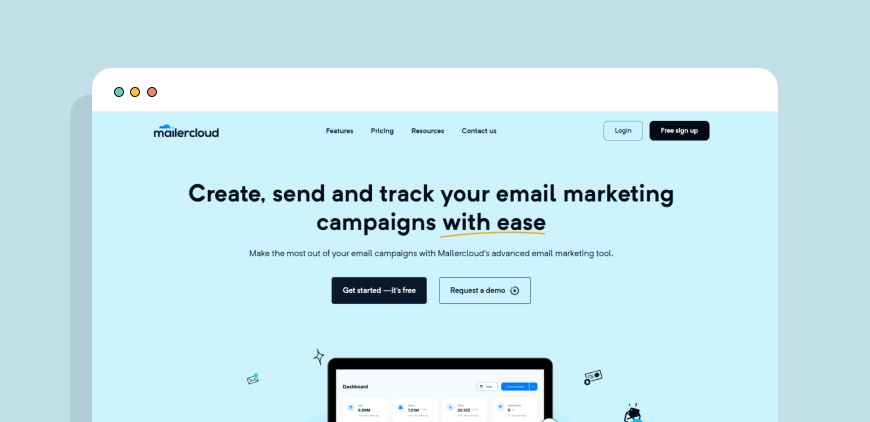
Mailercloud stands out as an excellent choice for small businesses and startups due to its user-friendly interface, affordability, and feature-rich free plan. Designed to simplify email marketing, it offers tools that empower businesses to create professional campaigns with minimal effort.
- Intuitive Interface: Mailercloud’s drag-and-drop email builder makes it easy to design visually appealing campaigns without requiring any technical skills. The platform also provides a wide selection of pre-designed templates to get you started quickly.
- Advanced Automation: The platform includes robust marketing automation capabilities, allowing businesses to set up workflows for tasks such as sending welcome emails, follow-ups, or drip campaigns. This feature is especially valuable for businesses looking to save time while maintaining personalized communication with their audience.
- Comprehensive Analytics: Mailercloud offers detailed analytics to track open rates, click-through rates, and conversion rates. These insights help businesses refine their strategies and improve the performance of future campaigns.
- AMP Email Feature: One of Mailercloud’s standout offerings is its AMP (Accelerated Mobile Pages) email functionality. This innovative feature allows users to create interactive, dynamic emails that go beyond static content. With AMP emails, recipients can interact with content directly within the email itself\u2014for example, filling out forms, updating preferences, or even browsing products without leaving their inbox. This enhances user engagement and improves the overall email experience.
- Free Plan: For budget-conscious businesses, Mailercloud’s free plan provides access to essential features, making it an ideal choice for those starting out. Unlike many free plans, Mailercloud ensures that you still have access to high-quality tools, allowing you to scale your efforts as your business grows.
Mailtrap
Mailtrap is an Email Delivery Platform designed to drive your revenue with which you can create and send impactful email campaigns or user-triggered email to recipients’ inboxes.
- Email Template Builder: build responsive emails with drag-and-drop email builder that has AI-powered features for assisting your creativity.
- Contacts & Lists: create different email lists and group your recipients for sending targeted campaigns to each list. Adjust your marketing approach to your customers needs and manage unsubscribes to avoid spam complaints and improve your deliverability.
Actionable Analytics: our helicopter-view dashboard with visual graphs helps you better understand and essentially improve your email marketing campaigns’ performance, track bounce rates and spam complaints and get better results across many mailbox providers
HubSpot

HubSpot is a comprehensive platform that combines email marketing with CRM, making it a powerhouse for larger enterprises or businesses looking for advanced marketing and sales automation tools.
- CRM Integration: HubSpot seamlessly integrates with its built-in CRM, allowing businesses to manage contacts and track interactions across multiple channels.
- Advanced Automation: Ideal for businesses requiring complex workflows, HubSpot offers tools to automate not just email marketing but the entire customer journey.
- Comprehensive Suite: In addition to email marketing, HubSpot provides tools for content marketing, social media, and lead nurturing, making it a go-to solution for large-scale marketing efforts.
Mailchimp
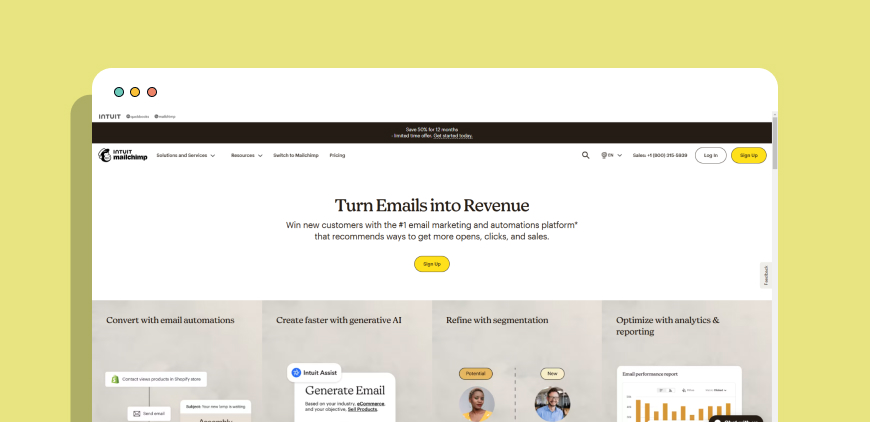
Mailchimp is a versatile platform that caters to a wide range of businesses, from small startups to large enterprises. Known for its ease of use and robust features, Mailchimp is a reliable option for those seeking an all-in-one marketing solution.
- Customizable Templates: A vast library of templates and design tools allows users to create visually stunning emails tailored to their brand.
- Analytics & Reporting: Mailchimp provides detailed insights into campaign performance, helping businesses optimize their strategies.
- E-commerce Integrations: With features like abandoned cart emails and product recommendations, Mailchimp is particularly well-suited for e-commerce businesses.
Choosing the Best Platform
When deciding which platform to use, consider your business size, goals, and budget. Mailercloud is a top choice for small businesses and those looking to leverage interactive email features like AMP. HubSpot is ideal for enterprises needing an integrated marketing and CRM solution, while Mailchimp offers versatility for businesses of all sizes.
Mailercloud’s unique AMP email capability and budget-friendly plans make it one of the best options for businesses seeking to engage their audience dynamically while keeping costs under control.
Key Takeaways
- Understand your needs: Determine your budget, goals, and required features.
- Evaluate platforms: Compare features, pricing, and usability.
- Utilize free trials: Test platforms to find the right fit.
- Prioritize automation: Streamline campaigns with marketing automation tools.
- Choose the right platform: Ensure the platform aligns with your business size and goals.
By carefully evaluating your options and understanding what each platform offers, you can choose the best email marketing platform to help your business succeed.
As a Marketing Director, I develop and implement marketing strategies, conduct market research, and manage a team of marketing professionals. With a successful track record of launching campaigns that drive revenue growth, I bring my marketing expertise to blog writing, creating engaging content that promotes the brand and its products/services.





























